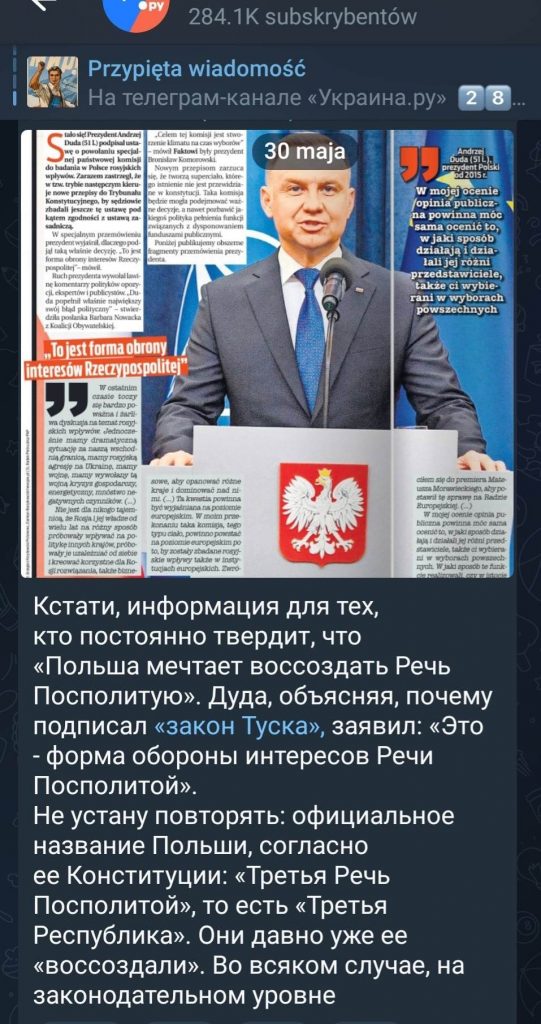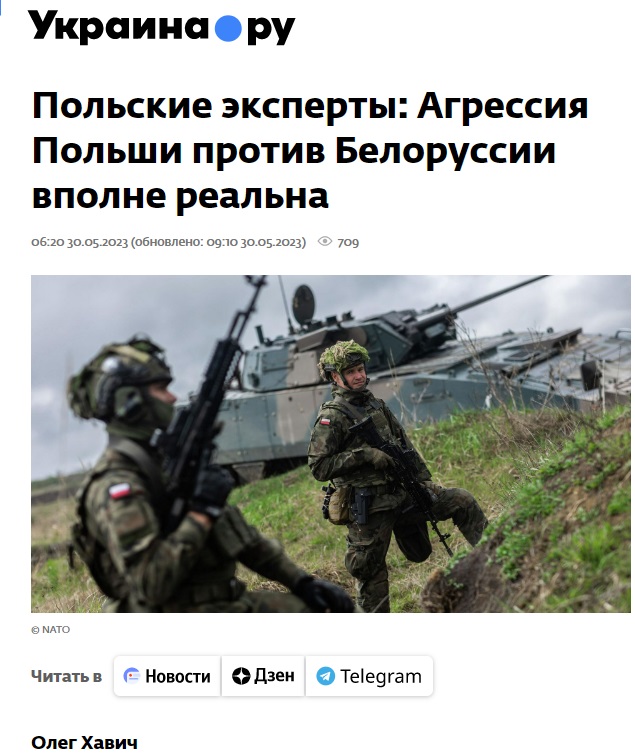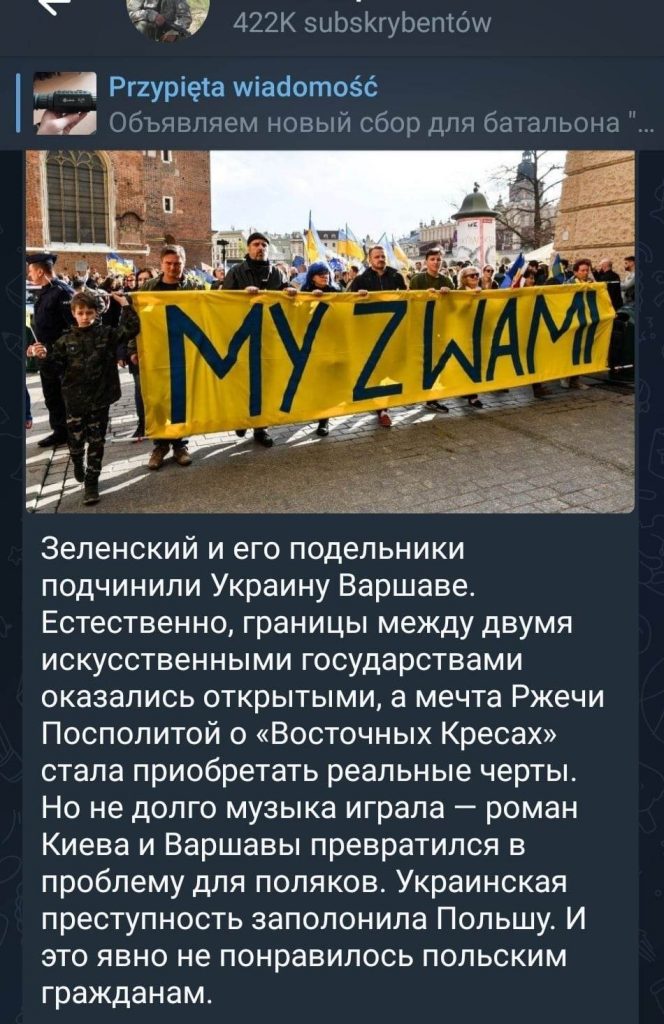Russian disinformation centres do not limit their activities in portraying Poland as an ‘aggressive’ state that is ‘preparing’ to occupy the lands of its neighbours. This one of the key narratives promoted by the Russian disinformation apparatus is being developed with dozens of threads adapting it to current events. One of the currently promoted themes refers to the “restitution of the First Republic”.
The theme of the ‘First Republic of Poland’, or rather the Third Republic of Poland ‘wishing’ to transform itself into the First Republic of Poland, is particularly beneficial from the perspective of the Kremlin’s current information objectives, as it covers both Belarus, Russia and Ukraine with its ‘reach’. Moreover, the issue of the ‘rebirth of the First Republic’ is deeply rooted in the consciousness of the population of post-Soviet areas, a result of Soviet propaganda, giving rise to the roots of the Russian disinformation apparatus. “The Republic of Poland” (implicitly the First Republic of Poland) is an entity portrayed as an “evil force” that not only “occupied Russian lands” (in the Kremlin’s perception, Ukraine and Belarus), but led to the “rupture of Slavic unity”. It is worth remembering that in Russian political myths it is emphasized that it was as a result of “Polonization” that the Ukrainian population (Ukrainians as Russians deceived/fooled by Poles) and its language (Ukrainian as the Russian language “polluted” by Poles). From this perspective, it is Poland that is “guilty” for all the crises in the European area of the former tsarist Russia, and is even “guilty” for the ongoing war in Ukraine – if not for the “intrigues of Warsaw”, the unity of the “Russian nation” would continue to this day.
The above myth did not end its life at the beginning of the 20th century, nor after the collapse of the USSR. It is still a serious element of the Kremlin’s and average Russians’ perception of the situation in the region and of Poland, Ukraine and Belarus itself. In the context of the ongoing disinformation campaign creating Poland as a country allegedly ‘preparing’ to attack Belarus, the theme of the ‘restoration of the Republic’ is presented as a ‘historical argument’ convincing, among others, Belarusians that Poland is about to start its plan by starting a war. In this context, the messages created by the Russian services about Poland’s alleged plans to occupy western Ukraine are being mentioned. The combination of both threads creates a “convincing” vision of reality, where Belarus will soon be attacked by both Poland and Ukraine (which is allegedly already under almost full control of the Third Polish Republic).
In doing so, the Russian side and Belarusian disinformation centres mention Lithuania as a country that will join in hostile actions against Belarus and Russia. An attack is also to come from Lithuania, and joint Polish-Lithuanian-Ukrainian troops are to lead to the ‘absorption of Belarus’ into the ‘new First Republic’. A key element of this narrative is the message that the Belarusians can win this war. The victory is to be guaranteed by the “brotherly support” of the Russian Federation, which “once again” will save the Belarusian nation by protecting it from “Polish slavery”.
A distorted vision of history plays an exceptionally serious role in Russian disinformation. A deeply rooted false vision of the past is an element that authenticates the propaganda threads that serve as a binder for messages relating directly to the present. For Moscow, ‘controlling history’ and imposing ‘its vision’ of the past on its neighbours is a tool for its current political goals – hence, among others, Moscow’s ‘extreme sensitivity’ to attempts to deconstruct Russian myths (especially those concerning the history of the Second World War).
Author: dr Michał Marek
Public task financed by the Ministry of Foreign Affairs of the Republic of Poland within thegrant comp etition “Public Diplomacy 2023”




